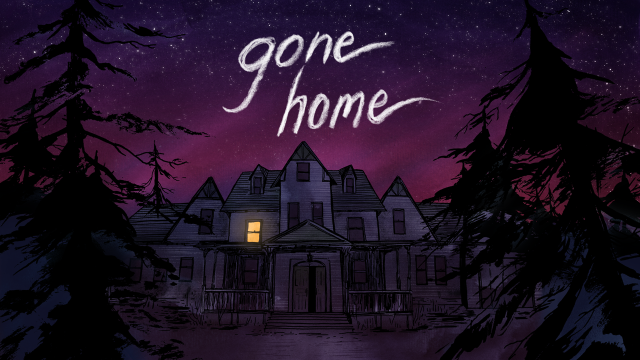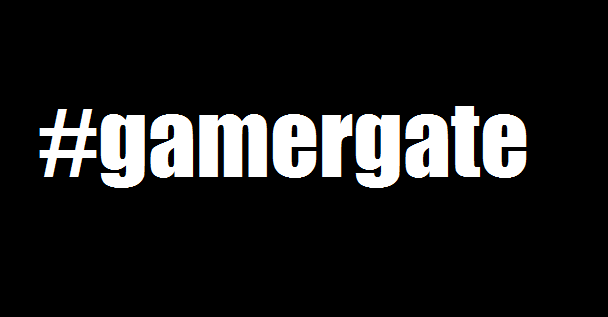***Editors Note: This editorial is about the culture around #GamerGate and the effects it has on the rest of the video game world or the entertainment world at large. If you need a brief on what exactly #GamerGate is or how it began, I would suggest this column on vox.com as it does an outstanding job of giving a top down view of the whole situation. You may feel you need to read it before diving into the following column.***
I’ve spoken with one of my best friends on many occasions about the irony of my role on BlackNerdProblems.com. Outside of editor duties, I write plenty of editorials (such as this one), comic reviews and TV recaps mostly. For a myriad of uninteresting reasons, I rarely write about video games on the site because currently my contribution is needed in other areas. This is ironic because video games are actually my real wheelhouse. I’m a hardcore gamer, a hardcore PC gamer even (yes, Ian Khadan and I both belong to that dark brotherhood of specs, source engines and frame rates) that typically plays everything on almost every major system. I have had opinions on the evolution and sometimes devolution of gaming, trends and tropes for a couple of decades now. I have an idea in my head about what can be happening in gaming and what should be happening in gaming just as much as any other dude on the internet and now I have a platform to voice those. And still, I can’t fully understand the strenuous defense of #GamerGate.
Most of us, even the really well informed ones, can be guilty of being narrow on certain topics or ideologies. I consider myself pretty open to dialogue on almost any issue, but I fall victim to this too. I know that I am socially liberal. 90% of the time, if I am engaged in a conversation that incorporates talking points of equality in gender, race, sexual orientation and identification, etc, I know which way I’m coming out of it. Still, I find myself scratching my head at the vitriol tossed at those that criticize the #GamerGate movement, the ones that can’t be swayed from their own personal message to see the straight up menace and human indecency that has hitched its wagon to their critiques. Then, naïve as I’ve been about acknowledging it, I realized what my disconnect was to the impassioned community that I usually count myself among. This is an elitist, straight, white male issue. This is everyone’s problem, but the issue, lies with the aforementioned grouping. Yes, white men make up a huge slice of the gaming population anyway, but that population density thickens when the chorus of “they won’t derail our message” pipes up. That can’t be ignored.

[quote_left]Somewhere, in the wreckage of this hashtag and movement, somewhere underneath the Beirut rubble, lies a real cause that isn’t outright misogyny or hatred.[/quote_left]But criticism of how games are made and marketed isn’t really what #GamerGate is about anymore, no matter how many people want to dismiss the real world implications it has had. It has devolved into a much more treacherous atmosphere that includes misogyny and outright sexism, homophobia and trans-phobia and death threats. #GamerGate isn’t the first well intended movement to be hijacked by destructive and highly problematic people and it won’t be the last. Before things moved from the original mission statement to the grotesque; the “well-intended” folks still had some shaky and borderline talking points. Many spoke about how games are judged, claiming that they became media darlings because they contained elements of human society that weren’t championed before: such as sexuality. The logic being that making a character gay (as an example) was a ploy to cater to a demographic in an uneven way (such as the criticism of positive reviews that Gone Home received).

I realize that there is a natural pushback when something you have devoted so much time and energy into begins to look unfamiliar to you. That something you felt you were in on the groundbreaking for or at least part of the rising tide of, has started to change in a way that isn’t customized to you any more for the sake of having people not like you be part of the conversation. This is where I feel like the rigorous defense of #GamerGate is largely an entitled white male one because I’ve been at this crossroads before. Black People called it hip hop. And while Video Games are a business just like music is a business, video games weren’t rooted in a cultural rebellion to a population’s way of life being marginalized, THEN exploited for profits by the same lineage of people that were cause for the rebellion in the first place…but I digress. As someone that has watched some of their most proud cultural endowments and forms of entertainment cracked open from their exclusivity and then had it undergo plastic surgery in hopes of appealing to a different group of people, I know the initial hit of, “but this was our thing.” Unfortunately, that’s where the comparisons end because Hip Hop wasn’t a closed door to young white women before Iggy Azalea happened.

[divider type=”space_thin”]
I’m sure it’s frustrating, to have what you believe to be a well-meaning critique of an industry practice be recognized mostly for harrassment, rape and mass shooting threats. But, that’s exactly what it’s known for now, and no amount of “you people just don’t understand” hand wringing is going to undo that. There is a difference between wanting something to represent a certain sentiment and the reality of what it actually represents. I’ve played played copious amounts of every major Grand Theft Auto release since it came to the PS2. I can tell you that its amazing at carving out the slice of Americana, giving your a sarcastic and cynical parody of how we live as Americans and what ultimately rules us pertaining to capitalism and consumerism each day. And I’d be right. But someone can also say that is one of the most violent and misogynist games that we get every few years or so…and they would be right too. What the game represents to the gamer public and the general public are two different things.
But here’s where the #GamerGate crusaders fail in their, “that’s not what it’s really about,” messaging. While plenty of them aren’t (intentionally) swimming in the human filth that are the men threatening women’s lives and harassing them to unlivable levels, they also aren’t doing anything about the maniacs either. Every time Anita Sarkeesian or Zoe Quinn shows the public a new threat to their personal safety, all the #GamerGate purists say, “that’s unfortunate but…” Here’s the thing, there is no “but.” [quote_right]There is a difference between wanting something to represent a certain sentiment and the reality of what it actually represents.[/quote_right]Your issue with how the gaming industry operates doesn’t trump the personal safety of someone with a critique of their own just because she’s a woman (don’t even get me started with the asshats that hold firm that women are creating fake threats to their being for attention, like…bruh, I can’t with your whole existence).
This situation reminds me of Sarah Palin going to rural America, proclaiming “This is the kind of America I believe in,” then when the racist rhetoric spins into a frenzy, standing by and soaking it all up, but not discouraging the hate mongers. If these guys (yes, they are overwhelming guys as we’ve pointed out) are so diehard about sticking on the message, then they can start by shouting down the pieces of shit that are threatening people using #GamerGate with the same vigor that they seek to discredit the women being threatened by them. You don’t get to ride the wave of ignorance and act like it doesn’t raise the profile of your specific cause and then act like it doesn’t exist or that you don’t have a role in it whatsoever. You don’t get to minimize death threats as some formality of having a profile (because it isn’t) and you don’t get to say that sexism has nothing to do with it either because you think it gives your movement a bad name.
Here’s the deal: I just wrote a harsh critique of #GamerGate and I have no fear for my personal safety. Will I receive some unkind response from some folks? Oh, I guarantee it. Might I get some racist diatribe thrown in there? Possibly. Death threats? I’m not convinced. And the fact that I can have that mentality largely because I’m a man, speaks volumes.



Show Comments
Anjuan Simmons
This is very well written. In politics, there’s a saying: “It’s not the scandal, it’s the cover-up”. When it comes to #Gamergate, “It’s not the collusion. It’s the misogyny”.
Justin Woo
If GamerGaters gave one actual fuck about corruption in the gaming industry and gaming journalism, they’d go after EA and Activision. But they’re not. There going after Anita Sarkeesian, Zoe Quinn, and Brianna Wu, who are relative nobodies. This was never actually about corruption, and it was always about women in your clubhouse.